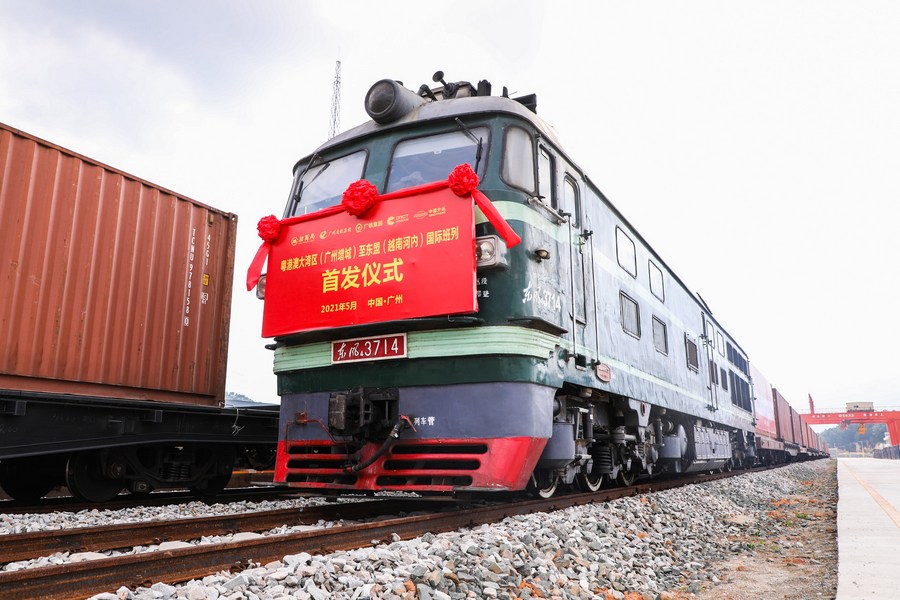Abstract : The Guangdong-Hong Kong-Macao Greater Bay Area launched its first freight-train route to ASEAN countries on Tuesday.

Photo
provided by Sinotrans Ltd. shows a freight train departing from
Guangzhou, capital of south China’s Guangdong Province, which is bound
for Hanoi, the Vietnamese capital, on May 25, 2021. (Xinhua)
GUANGZHOU,
May 25 (Xinhua) — The Guangdong-Hong Kong-Macao Greater Bay Area
launched its first freight-train route to ASEAN countries on Tuesday.
A
freight train loaded with goods worth about 94,400 U.S. dollars
departed from Guangzhou, capital of south China’s Guangdong Province, on
Tuesday. The train will take about four days to reach its destination,
the Vietnamese capital Hanoi.
Sinotrans
Ltd., one of the route’s operators, regards the international
freight-train service as an important channel to ensure the smooth
operation of the global supply chain during the COVID-19 pandemic.
In
2020 alone, the company conducted 1,580 freight-train trips, carrying
157,000 twenty-foot equivalent units (TEU) of goods, with cargo volume
up 23 percent, according to Sinotrans.
As
the first freight route between the two regions, the new service is
also expected to boost the high-quality development of countries and
regions along the Belt and Road, the company said.
About Xinhua Silk Road
Xinhua Silk Road (en.imsilkroad.com) is the Belt and Road Initiative (BRI) portal.China’s silk road economic belt and the 21st century maritime silk road website,includes BRI Policy, BRI Trade, BRI Investment, Belt and Road weekly, Know Belt and Road, and the integrated information services for the Belt and Road Initiative (BRI).
Source: First freight-train service launched between Greater Bay Area, ASEAN
Comments
Post a Comment